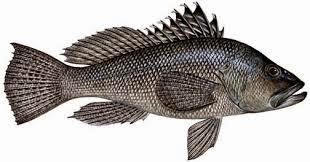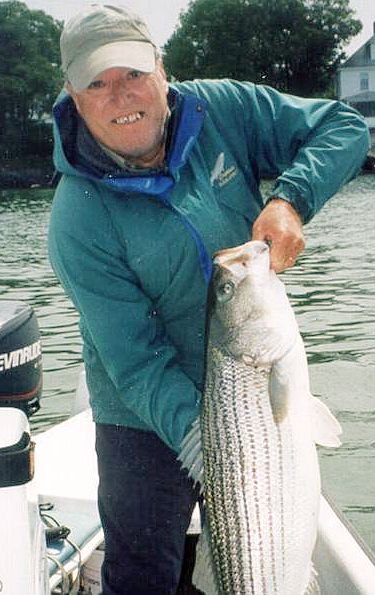What’s new for 2015 on Maine’s coastal fishing
waters for recreational anglers? Black
sea bass fishing is a new
game in Maine.
During
the past couple of years, more and more black sea bass have been caught from
Maine coastal waters. Most
Mainers don’t even know what they look like. Here’s a photo of them. They are
one of the tastiest, bottoms feeding fish in the Atlantic
Ocean.
Looks a
little like a perch in profile doesn’t it? Well, they school like perch and feed
as aggressive and like heavy structure.
Maine’s Department of Marine
Resources just last August established new and the first regulations in
Maine waters on black sea
bass. The new
regulation put in place a daily bag limit for recreational harvesters of 10 fish
and a minimum size for both commercial and recreational fish of 13 inches. The
season for recreational harvesting is May 18 through
September19.
“Black
sea
bass have become more prevalent in Maine
waters in recent years so the department determined that it was important to
develop regulations that would provide opportunity for both recreational and
commercial fishermen while ensuring that this new commercially viable species
can be sustained” said Maine Department of Marine Resources Commissioner Patrick
Keliher.
Commercial
harvesters fishing in Maine
waters will have a daily limit of 50 pounds. In order to fish commercially for
black sea bass, harvesters must obtain a DMR Commercial Pelagic and Anadromous
Fishing license. Wholesalers who wish to sell black sea bass must also obtain a
black sea bass endorsement and must report all transactions weekly to the DMR
landings programs.
The
method of fishing for both commercial and recreational fishing is hook and line
only.
Black sea bass are a perch-like fish that lives from the Gulf of Maine to Florida. They are mottled smoky gray to dusky brown or blue-black in color, with one long continuous dorsal fin. They live on the bottom, on offshore ledges and banks. According to the Maine Sea Grant’s Maine Seafood Guide, black seas bass is versatile and popular seafood, sold whole and as steaks or fillets, is low in calories and fat, and considered a good source of selenium and omega-3 fatty acids.
Black sea bass are a perch-like fish that lives from the Gulf of Maine to Florida. They are mottled smoky gray to dusky brown or blue-black in color, with one long continuous dorsal fin. They live on the bottom, on offshore ledges and banks. According to the Maine Sea Grant’s Maine Seafood Guide, black seas bass is versatile and popular seafood, sold whole and as steaks or fillets, is low in calories and fat, and considered a good source of selenium and omega-3 fatty acids.
How
to find black sea bass in Maine
waters is a hunt as they aren’t a historic fish that anglers know much about.
The best way to start is by looking at nautical charts to locate rocky humps or
rocky ridges. They really like rock structure. Use heavy egg or bank sinkers
attached to two hooks with a foot or so leaders, about two feet apart. Make
certain to use sinkers heavy enough to hold bottom. Carolina
style rigs work just fine. Fishing at anchor or by drifting over structure are
both productive techniques. For terminal tackle, I use Temple Fork Outfitters
Mangrove Series Rods in nine foot and eight to 12 test
line
rating with an LL Bean 3000 spin reel filled with 12 or 14 pound,
Cortland
green
Master Braid Premium with a 4 foot, fluorocarbon leader with a swivel at the
end to attach the Carolina rig to.
Being bottom feeders, black
sea
bass are known to eat crustaceans and mollusks as well as several kinds of small fish. Good baits include marine worms, shrimp, crabs, clams and cut fish. Mackerel jigs are also effective.

